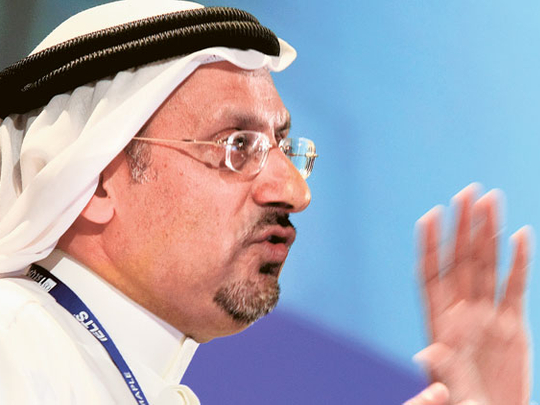
Dubai: Universities in the UAE must consider introducing and enhancing programmes in transportation and logistics as the country's transportation industry is set for growth in coming years.
Home to two of the world's leading airlines, Emirates and Etihad, in recent years Dubai and the UAE has seen a boom in its transportation industry.
It is also said to be one of the key drivers of Dubai's economy.
The establishment of Dubai's Road and Transport Authority, the introduction of the Dubai Metro and now the establishment of the GCC Rail Authority led by the UAE is proof.
Yet, despite numerous jobs set to become available in the transportation and logistics industry, universities in the country need to catch up quickly in the training of sufficient human capital.
"An area many academic institutions should consider now and need to look at carefully for Dubai and the UAE is transport and logistics," said Dr Ayoub Kazim, managing director of Dubai Knowledge Village (DKV) and Dubai International Academic City (DIAC).
He spoke at the recent QS Middle East and Africa Professional Leaders in Education Conference (QS-MAPLE) in Dubai.
"Transportation and logistics is one of the key drivers of Dubai's GDP as now only four per cent of the emirate's GDP is contributed by oil and gas," he said.
The new $40 billion (Dh146.89 billion) UAE rail network will link the country's cities with Saudi Arabia and Oman.
Freight transportation on the rail network is set to begin in 2013.
Research improves rankings
Another area of concern in the UAE's higher education sector is the lack of adequate research undertaken at tertiary institutions. The UAE is home to 50 per cent of universities in the GCC region and 15 per cent of institutions in the Middle East.
Yet, it ranked 74th out of 134 countries in a recent World Bank report, which assessed the quality of global research institutions.
Qatar, the GCC region's leading nation for research, ranked 30th.
"The UAE publishes around 66 scientific research papers per one million inhabitants," said Dr Kazim. "This is just a quarter of what Kuwait produces."
He added that Qatar is able to lead the region with quality academic research because it allocates nearly three per cent of its GDP towards research and development (R&D).
More steps needed
"Although the UAE government has moved towards allocating a budget to R&D more steps need to be taken," he said.
"Not only by the government, because the private sector also needs to chip in."
He added that universities in the country concerned with their global rankings need to understand the important role scientific and academic research will play in their elevation.











